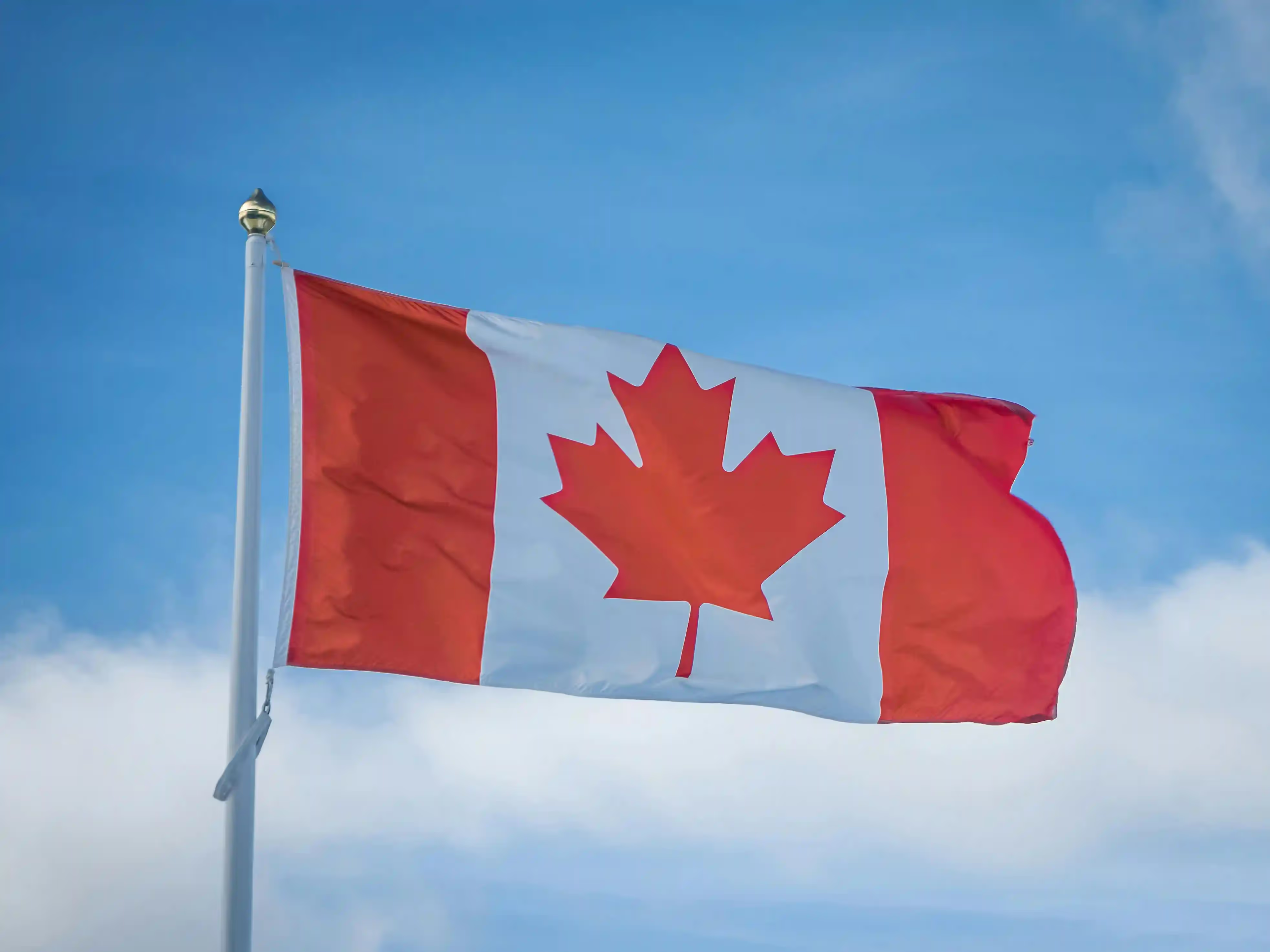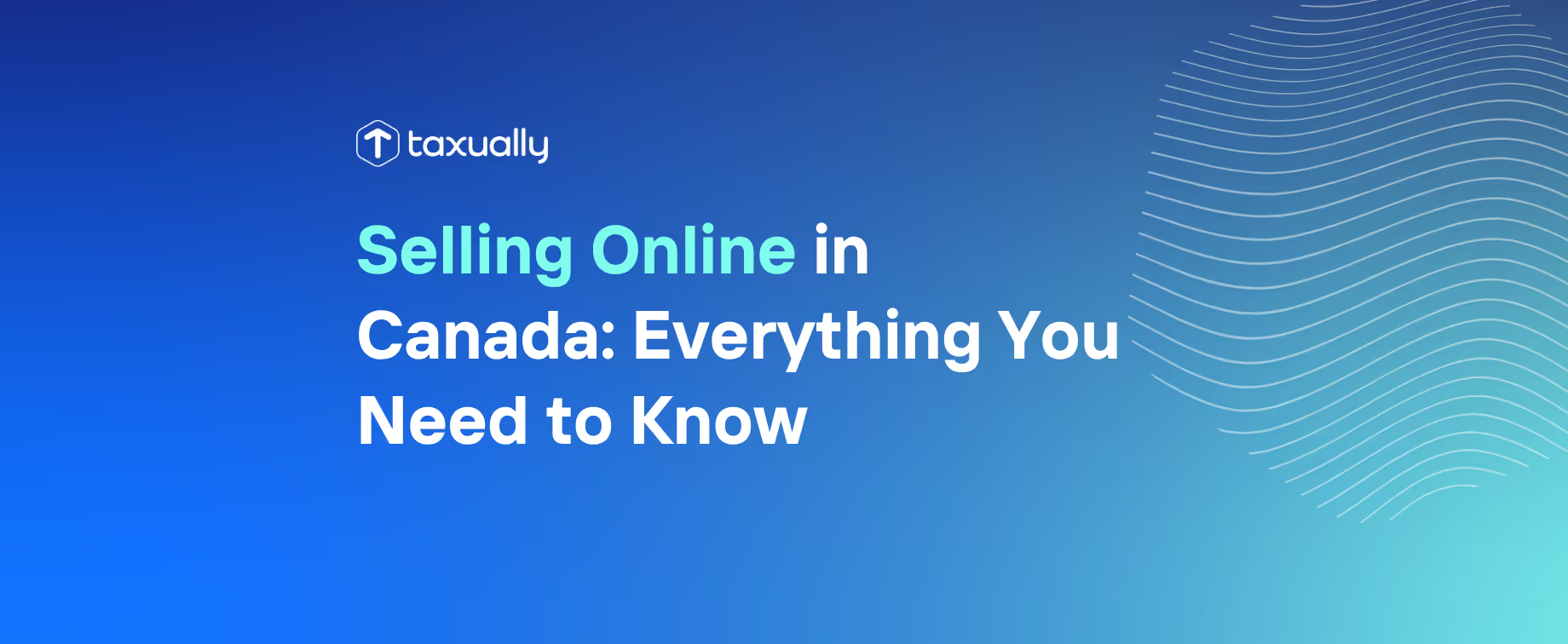Key takeaways
- Canada’s tax system is complex: Sellers must navigate a mix of federal (GST), harmonized (HST), and provincial (PST) taxes depending on customer location.
- Registration thresholds matter: Both Canadian and non-resident sellers must register for tax collection once annual revenue exceeds CAD $30,000—or sooner if selling through certain platforms.
- Digital and physical goods are both taxed: Whether you're selling software or shipping products, Canadian tax rules apply—so make sure your pricing and processes reflect that.
With a tech-savvy population, high internet penetration, and a strong appetite for digital shopping, online sales in Canada are on the rise. For both domestic entrepreneurs and international brands entering the market, understanding the rules around e-commerce in Canada—especially when it comes to taxes—is key to long-term success.
But here’s the catch: Canada’s sales tax system is one of the most complex in the world. So if you're getting into online selling in Canada, you need to understand how taxes like GST, HST, and PST work across the country.
This guide covers everything you need to know about sales tax in Canada, registration requirements, and compliance tips to make your cross-border e-commerce venture as smooth as possible.

Understanding Canadian sales tax
Canada doesn’t have a single national sales tax. Instead, it uses a mix of federal and provincial taxes. Depending on where your customers are located, you could be required to collect one or more of the following:
GST – Goods and Services Tax
The Goods and Services Tax (GST) is a federal tax charged at a rate of 5% on most goods and services across Canada. It applies in every province and territory and is administered by the Canada Revenue Agency (CRA). Most online sellers, whether based in Canada or overseas, must deal with GST if they exceed the registration threshold.
HST – Harmonized Sales Tax
Some provinces have chosen to combine the federal GST with their own provincial tax to create a single tax called the Harmonized Sales Tax (HST). This simplifies collection and remittance for sellers. The HST applies in:
- Ontario – 13%
- Nova Scotia – 15%
- New Brunswick – 15%
- Newfoundland and Labrador – 15%
- Prince Edward Island – 15%
If your customers are in these provinces, you must collect HST instead of separate GST and PST.
PST – Provincial Sales Tax
In provinces that haven’t harmonized their taxes, a separate Provincial Sales Tax (PST) is applied in addition to the federal GST. Each province manages its own PST system, which can vary in rate, registration requirements, and rules:
- British Columbia: 7%
- Saskatchewan: 6%
- Manitoba: 7%
- Quebec: 9.975%
When do you need to register?
If you’re selling taxable goods or digital services to Canadian consumers, you may be required to register for a business number in Canada and begin collecting tax.
Here’s how it typically breaks down:
- Canadian businesses: If your total taxable revenues (including those of your associates) exceed CAD $30,000 over four consecutive calendar quarters, you must register for GST/HST.
- Non-resident sellers: If you're selling digital products, services, or goods to Canadian customers and meet the revenue threshold of CAD $30,000 or are using a platform that requires tax compliance, registration is also mandatory.
- Platform operators: Marketplaces facilitating online selling in Canada (like Amazon or Shopify) may also have collection obligations under the new digital economy rules.
You can voluntarily register even if you're under the CAD $30,000 threshold (which might allow you to claim input tax credits).
Revenu Québec runs its own registration system separate from the CRA (Canada Revenue Agency). If you’re selling to Quebec, you may need to register for QST (Quebec Sales Tax), even if already registered federally.
Digital services & marketplace rules
Canada has tightened regulations on digital sales and online platforms:
- Digital products and streaming services (e.g., apps, music, software) sold to Canadian consumers must include GST/HST, even if the seller is based outside Canada.
- Online marketplaces (like Amazon, Etsy, etc.) may be responsible for collecting tax on behalf of third-party sellers.
- Ride-sharing and short-term accommodation platforms (like Uber or Airbnb) are also subject to GST/HST rules.

Shipping and customs
When shipping physical goods to Canadian customers, consider:
- Customs duties and import taxes: Your customers may be charged additional fees upon delivery. Being transparent about this can improve the buyer experience.
- HS codes and commercial invoices: Ensure accurate documentation to avoid border delays.
- Duties and de minimis thresholds: Goods valued under CAD $150 are typically exempt from duties, but still subject to GST.
Tip: Partner with a logistics provider experienced in cross-border fulfillment to streamline the process.
Invoicing and recordkeeping
If you're registered for Canadian GST/HST:
- You must issue tax-compliant invoices that show your registration number and applicable tax rate.
- Maintain clear records of all Canadian transactions for at least 6 years, in case of audit.
Filing and payment
Registered businesses must:
- File periodic GST/HST returns (monthly, quarterly, or annually).
- Remit collected taxes by the due date to avoid penalties and interest.
Filing frequency is typically based on your total annual Canadian revenue.
Tips for selling successfully in Canada
- Localize your website: Offer CAD pricing, French translations (especially in Quebec), and Canadian shipping options.
- Be transparent about taxes: Display final prices, including GST/HST/PST where possible.
- Offer Canadian-friendly payment methods like Interac, in addition to credit cards and PayPal.
- Understand customer expectations: Canadians expect prompt shipping, easy returns, and clear communication.
Summary
Expanding into Canada is a smart move for online businesses looking to grow globally. But compliance is key. Registering for the appropriate taxes, understanding provincial nuances, and keeping your customers informed will help you succeed and avoid costly mistakes.
Looking for the best automated tax compliance solution for your business?
Taxually is an all-in-one VAT and sales tax automation platform designed to simplify compliance, reduce risk, and scale with your business. From registration to filing, our software automates every step—across the U.S., EU, and beyond.
Book a free call with our tax experts to see how Taxually can streamline your tax operations and help you stay fully compliant in every market.
Frequently asked questions
New Year's Day - 1/1/2024Memorial Day - 5/27/20244th of July - 7/4/2024Labor Day - 9/2/2024Thanksgiving Day - 11/28/2024Day after Thanksgiving - 11/29/2024Christmas Eve - 12/24/2024Christmas Day - 12/25/2024
Do I need to register for Canadian sales tax if I'm a non-resident seller?
Yes, if your taxable sales to Canadian customers exceed CAD $30,000 in a 12-month period, or if you sell through certain platforms, you're required to register and collect GST/HST/PST.
What’s the difference between GST, HST, and PST?
GST (Goods and Services Tax) is a federal tax. HST (Harmonized Sales Tax) combines GST with provincial tax in some provinces. PST (Provincial Sales Tax) is charged separately in provinces that don’t use HST.
Which provinces use HST?
Ontario, Nova Scotia, New Brunswick, Newfoundland and Labrador, and Prince Edward Island all use HST instead of separate GST and PST.
Do I need to charge tax on digital goods and services?
Yes, digital products like software, apps, and streaming services sold to Canadian consumers are subject to GST/HST/PST, regardless of where the seller is based.
What if I sell through a marketplace like Amazon or Shopify?
These platforms may be responsible for collecting tax on your behalf under Canada’s digital economy rules. However, you should still ensure compliance and registration as needed.



















